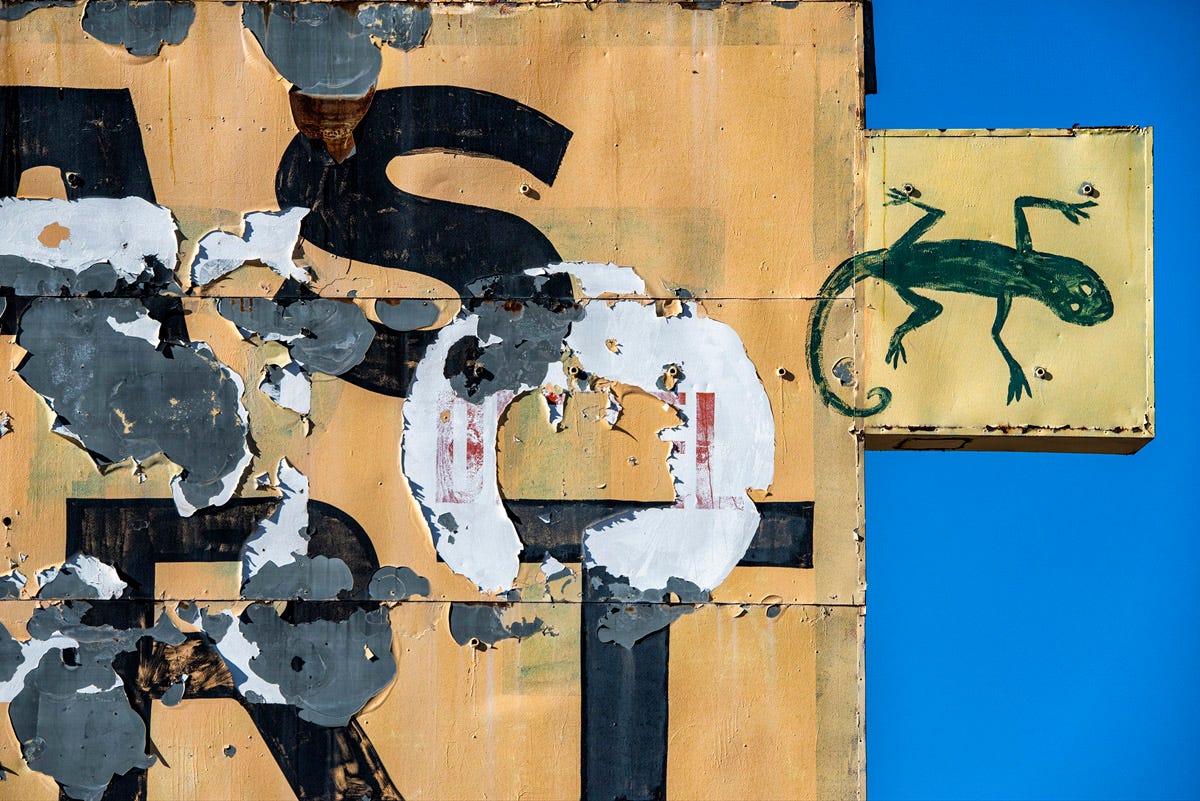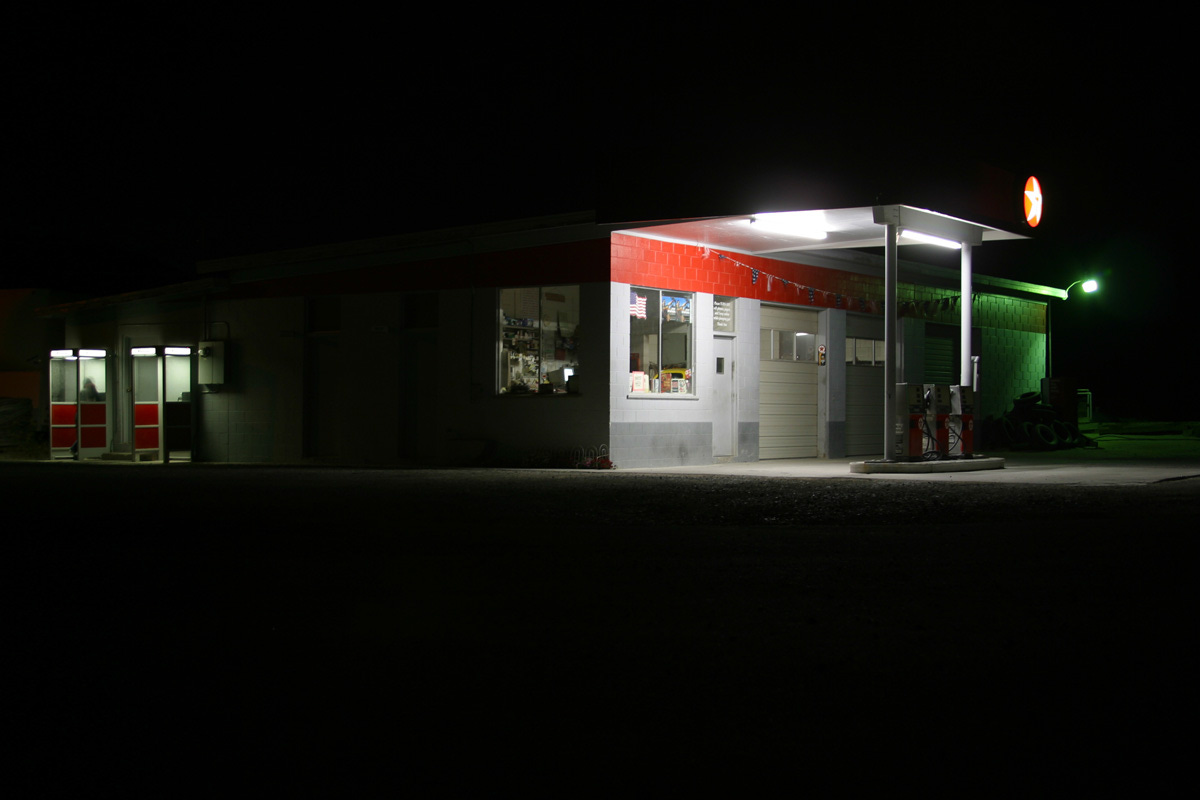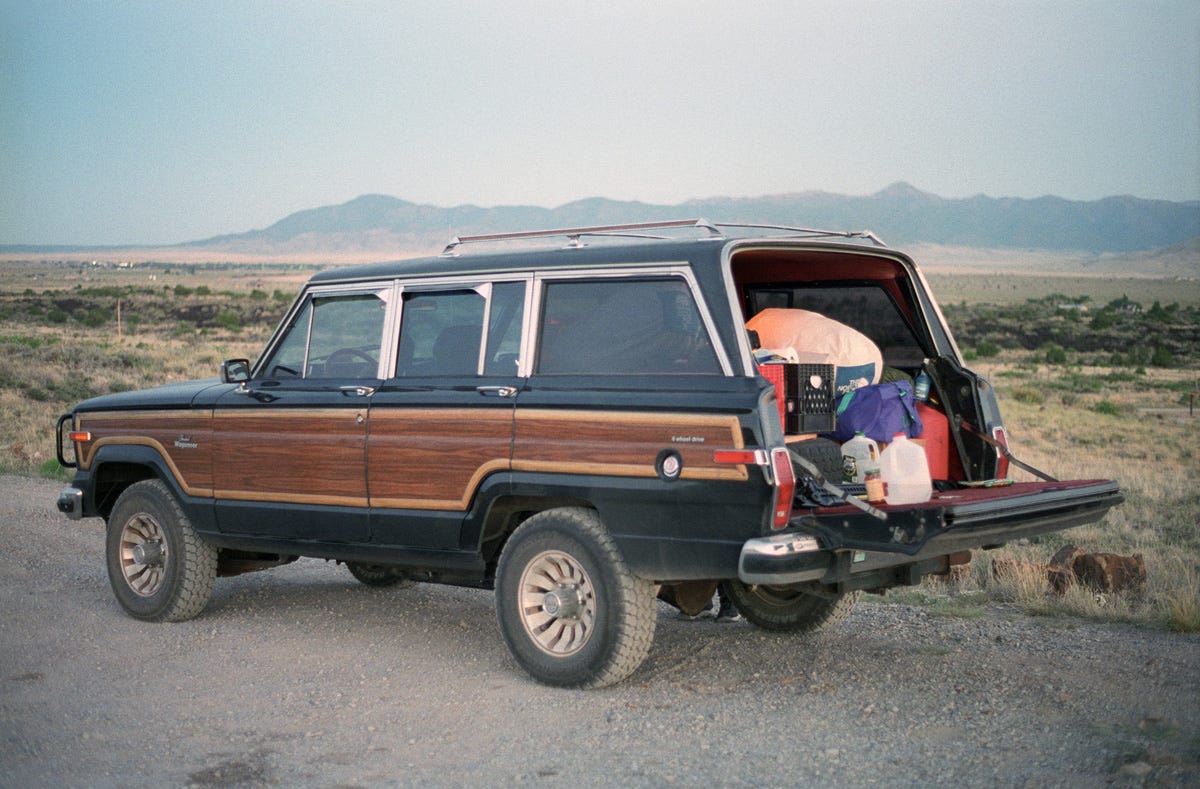Silence and Solitude
When I get to the desert, I find a place to park. I turn off the engine, then just sit back and let the quiet envelop me. The emptiness expands and something shifts inside.
I was going to write about “quiet.” It’s a subject close to my heart. I type these words to the sweet lilt of a jackhammer outside my window, where they have been digging up the street for over two months, carving a series of ditches, ten feet deep, from one catch basin to the next. All day long, a sound you don’t usually hear in New York City - whining chainsaws - also floats up to my window.
They use these to cut the rough lumber that lines the trenches. A box truck parks under my window. A large air compressor drones inside of it all day and the workers gather there for conversations and meals. I thought this would be a one-week project when it started, way back in March, but it has continued ever since, for six days a week, starting at 6:30 am and ending close to 8 pm every night except Sundays. It may never end.
Houston Street, which runs from the East River to the Hudson River, about two miles as the pigeon flies, took 20 years to re-pave and rebuild. People built careers, then retired, while working on that one project. This thing outside my window has gotten so loud that my neighbors have started to call the local politicians. I think that’s a waste of time.
Between the ongoing renovation in the apartment next door - grinding, hammering, drilling, sanding and loud voices coming through the walls - and the project outside, I have again learned the power of acceptance. Of course, there is a fine line between acceptance and resignation. I chose to buy a couple of white noise generators. Those help a bit.
New York City has always been a loud place. In the background is always a great hum - the sound of thousands of motors, trains rumbling underground, air conditioners, cars, trucks, sirens, jets and people - a constant roar, punctuated by even louder noises - jackhammers, chainsaws and jake brakes, screaming, radios, and car horns. Why do people who never honk in their home town think it’s okay to sit on their horn when they enter Manhattan? When helicopters hover over a neighborhood here, people call each other up to see if anybody knows what’s going on. Helicopters are never good. Noise is a part of life.
Add to all of this the newest noises - soundtrack to a nightmare - the one-sided cellphone conversations and video chats, ringers and text alerts going off everywhere, no longer just in the privacy of home, but RIGHT THERE NEXT TO YOU while you’re walking down the street. We now endure hearing the most intimate details and banal crap from everyday life that people share with each other. This was all previously confined to private spaces and phone booths until this blighted, stricken twenty-first century began.
I should be used to noise by now. It’s part of the price I pay for living in this town, this once-magical place that gets wealthier, more homogenous and less interesting every year. It has always been noisy. It’s what you get when you live in a place dedicated to its own self-destruction and reinvention, when you get “developers” - rich men building crap - calling all the shots. The 1970s and 1980s were kind of great because the city was falling apart and nobody was rebuilding it at the time. I won’t say it was quieter, but there was more stillness then and there was certainly more open space. There were fewer people at the time and no angular glass monstrosities from narcissistic architects on every corner. We did not know how good we had it at the time. We just did not know.
On the road, especially in a cheap motel room, I am often dogged by the drone of television noise coming through the walls or the thud of footfalls from the floor above. Now, with smartphones, I can use white noise apps, and they help a bit. Such is the price that I pay for existence with other humans - I must learn tolerance or suffer. Sometimes I learn tolerance and still suffer.
When I was a kid in Yonkers, it was quiet. It was quiet, lazy and green. Birds, the occasional plane going overhead, and my own mouth were the main sounds. I am told that I would not shut up. In fact, I remember a game that the adults used to play with me when I was a young boy, before I got sullen and strange. One of them would say, “Let’s play ‘peace.’ The first one who talks loses!” I would then immediately shout out “I LOSE” and keep talking. It must have been hard on my dad, who worked his butt off and valued his precious free time.
So, noise has been on my mind lately. I think of one of my private guilty pleasures - of when I finally get out west to the desert, find a place to park, turn off the engine, then just sit back and let the quiet envelop me. The emptiness expands and something shifts inside. It’s the same feeling I get when I slide into a primitive hot spring. But I realize now it’s not quiet and noise that are really on my mind. What’s really on my mind is solitude. I have felt a bit alienated lately.
An old friend once told me that “isolation is when it’s forced on you, but solitude is when you choose it.” He was the same guy who told me that “sanity speaks in a whisper,” so I believed him when he first told me that, 30 years ago. I believe him now more than ever.
Sonny was the first guy I knew who played computer solitaire. He played it obsessively. This was in the early 1990s. He had already seen a child of his die a horrible death. We sat in coffee shops for years, talking about stuff. He ended up in a long-term care center for the last 15 years of his life, having lost his legs to diabetes - and he was powerless over his own isolation by that point. He had no choice.
Solitude, isolation, silence and loneliness. Sometimes it’s hard to tell what’s what. Another wise old guy used to tell me how he would go to the desert when he felt scrambled up inside. “The desert will take you apart, Paul, but then it will put you back together again.” This was Jerry, another guy who knew how to be alone. As with all people who spend too much time by themselves, Jerry could talk your ear off.
If you ran into him on a street corner, you might be standing there for 40 minutes before you could engineer an escape. Still, he was always kind and he always would listen, as well as talk. Jerry would ask me to take him along on one of my road trips - he was getting too old to drive on his own - and I always put him off. I have trouble with too much human company. He is gone now and I wish I had taken him up on the offer. At the time, though, I was too busy to slow down for anybody.
My first long solo road trip, I made sure to bring along a box of cassette tapes for the rental car. I wanted to make sure I did not have to rely on local radio stations. I drove all over the west and the southwest in a rented Mustang convertible, hitting some gravel roads and scraping bottom on the ruts, but mainly sticking to the two-lane highways. I would blast my cassette tapes and scream along with them.
There was nobody out there to talk with, aside from people you might meet at gas stations or in towns. Cell phones did not exist. You were on your own and you had better be emotionally self-sufficient or you might lose your mind. And if you did lose your mind, so what? Isn’t that why we go on road trips, for the psychic shift, for the emotional self-destruction?
I drove with the music on, lost in my obsessive thoughts, having just gone through an awful breakup. When the voices in my head got too loud, I would make the occasional call from some lonely payphone, using a phone company calling card. I would love to take a trip like that now, but the phone booths are disappearing fast.
Over the next few years, I took a bunch of trips with my friend Peggy. We were road buddies and, on our first cross country, we rented a car, put 10,000 miles on it in two weeks, and came home transformed. For the next few years, we would fly out to Vegas and rent a car, then drive thousands of miles in crazy loops all over the western states. Eventually, I bought a used Jeep Wagoneer that I could properly fill with a ton of crap, then we tore up roads all over the country in it.
It was fun to have a road companion in Peggy. After the inevitable blow-out argument we had on the second day of our first trip, we became fast friends and good co-travelers. It’s not easy to find someone you can travel with. Luckily, there was no romance involved to complicate things. We were just friends. When Peggy moved to Hawaii around the year 2000, I began to take more long journeys alone.
There have been a few exceptions along the way, but, for the most part, I have spent the last 19 years driving around by myself. Actually, I should correct that to say, “with a good canine companion.” First, there was Elko, who drove with me from 2006 through 2015. That 13-pound dog logged at least 200,000 miles.
For the past year, young Santo has been learning the ropes. He has yet to go across the country and stay in a new place every night. I have hesitated to inflict the hard road on him, but I should get over it. He’s a dog and will probably be happy so long as we’re together. Still, there is not a ton of conversation going on in the car, even on trips to Florida.
There’s also not a lot of music playing. I love music as much as I ever did and now, with iPods, iPhones and satellite radio, there’s more available than ever, but I generally prefer to drive in silence. It can freak out the random human who tags along and who, within the first hour, will invariably say, “Can we listen to something?” Some of my favorite times on road trips are when I’m driving with another person, mile after mile, with neither one of us saying a thing and no music on.
I did not have to learn to be alone as an adult until after my divorce. Then, suddenly, at the age of 31, I had to sit with myself. It was not easy. Much as I liked to believe I was a lone wolf, I had no idea what it really meant to howl at the moon all alone.
I had to admit that I needed people. I’m not sure why that truth felt like a bitter pill to swallow at the time, but it did. I did not want to be one of those needy people who cannot be by themselves. There was some kind of stigma attached that had nothing to do with my upbringing or anything else I could put my finger on.
I eventually learned how to enjoy my own company and began to finally appreciate all those solo miles on the road. My head will occasionally fill itself with crazy thoughts, usually baseless worries that tear me away from the glory all around me.
Sure, I’ll occasionally have to make a phone call to break the spell. And yes, wherever you go, there you are. That being said, I like those long drives. They are like meditations. When it gets too quiet for too long, I’ll put on some music or have a long chat with the hound.
I rail against the city and the noise, but maybe I would suffer without it. If I’m in a rural house by myself and it’s too quiet, I start to hear things. And when I’m too long without people, when the solitude becomes isolation, I begin to think too much and lose all perspective. There’s a fine line between alone and “alone.”
It’s terrible to feel alone, but it’s worse to feel alone when you are actually with somebody. It’s terrible to grow inward and away from another person, to suffer long arguments that disintegrate into silence, where each of you is too wounded to say something. I have no answers. I do believe there’s a great danger in being unable to be alone with oneself. Danger in forming attachments out of fear.
Do I have to share an experience in order to enjoy it? Absolutely not. In fact, if it’s good enough to share with somebody else, it’s good enough to do alone. Some things are better alone than with another person
Are shared memories any more precious than solitary memories? No, but with shared memories, somebody can remind you what happened long after you have forgotten it. Which brings us to mortality, fear and oblivion.
I think I’ll stop now.
This piece first appeared in EXIT CULTURE: WORDS AND PHOTOS FROM THE OPEN ROAD. You can purchase the book on Amazon HERE.
If you can’t swing a regular subscription fee, consider helping to cover the costs of production via donations to Venmo or Paypal. Any amounts are appreciated!
Paul Vlachos is a writer, photographer and filmmaker. He was born in New York City, where he currently lives. He is the author of “The Space Age Now,” released in 2020, “Breaking Gravity,” in 2021, and the just-released “Exit Culture.”











Right on, Paul. The desert is my sanity preserver and driving away from the chores is an itch that never really goes away.
I once had my radio/CD player stolen from my car while on a solo trip to Seattle. I dreaded the nine hour drive home to Montana. What will I listen to! Nothing!!! and it was the best nine hours I had had in a very long time. I was alone in and with my own thoughts. It was nice company.